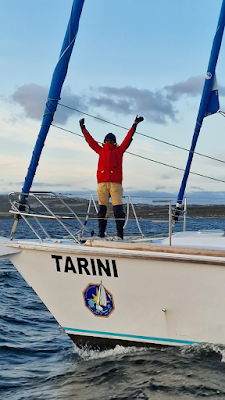The Majestic Journey Through the Magellan Strait
-
 N Chandra
N Chandra
| Tuesday 3rd of June 2025 02:40:07 AM (UTC)

Navigating History and Challenges in a Key Maritime Passageway
The Magellan Strait connects the Atlantic and Pacific and separates Tierra del Fuego from the mainland of South America. The Strait is a navigable sea route located in southern Chile, serving as a natural boundary that separates the mainland of South America to the north from the Tierra del Fuego archipelago situated to the south. It is widely recognised as the most significant natural passageway connecting the Atlantic and Pacific oceans. The Strait stretches approximately 570 kilometres in length and narrows to about 2 kilometres at its tightest point.
The Strait, discovered in 1520 by the Spanish expedition led by the renowned Portuguese navigator Ferdinand Magellan, holds a significant place in history. Named after Magellan, it has been a symbol of both opportunity and danger for countless sailors and explorers throughout history. The discovery of this navigable sea route was a significant milestone in the Age of Exploration, as it provided a direct path between the Atlantic and Pacific oceans, opening up new possibilities for trade and exploration.
Navigating through the Strait of Magellan presents considerable challenges due to its frequent narrow sections, along with unpredictable winds and strong currents that can change abruptly. As a result, maritime piloting has become mandatory for vessels traversing the Strait. This waterway is not only shorter but also more sheltered compared to the Drake Passage, which is known for its often tumultuous conditions and can be perilous due to frequent gale-force winds and drifting icebergs. The complexity of navigating these waters adds a sense of respect for the skill and experience of the sailors who undertake this journey. Are you ready to delve deeper into the challenges and triumphs of navigating the Magellan Strait?
Also Read: Navigating Nature’s Challenges: The Magellan Strai...
Start the conversation
Become a member of TxtTale to start commenting.
Already a member?

